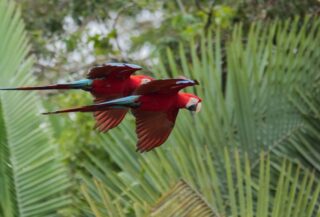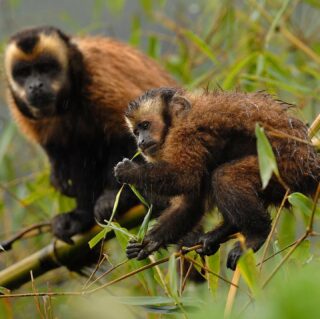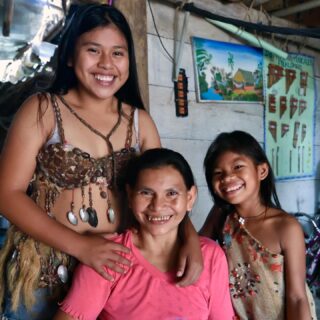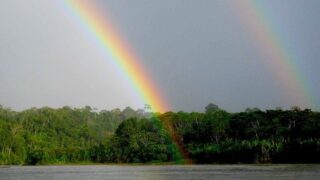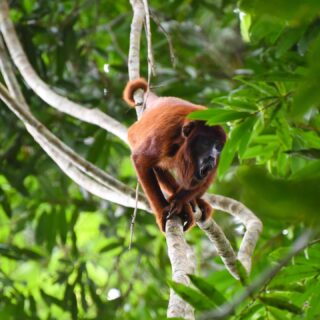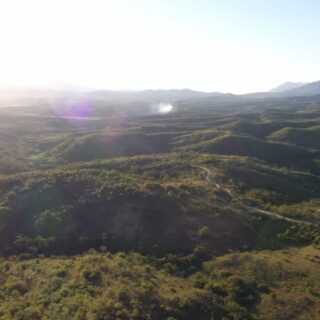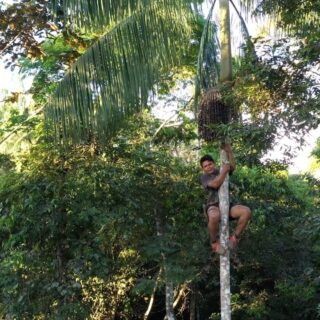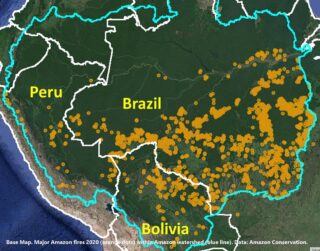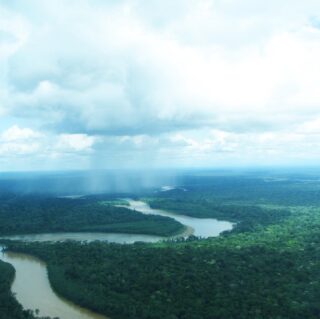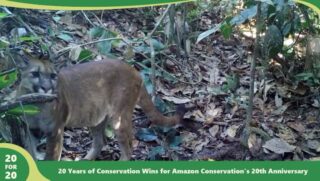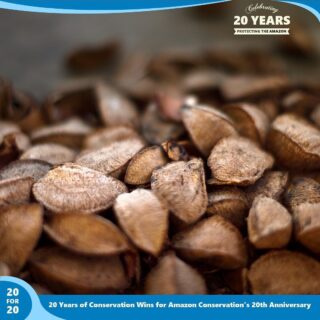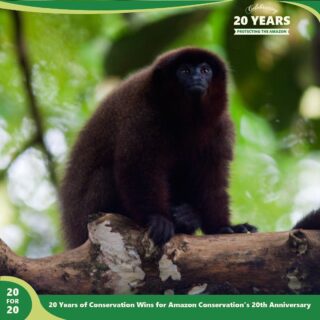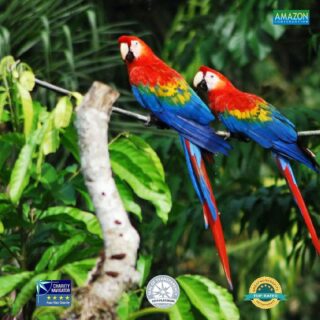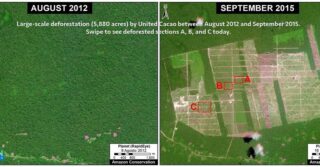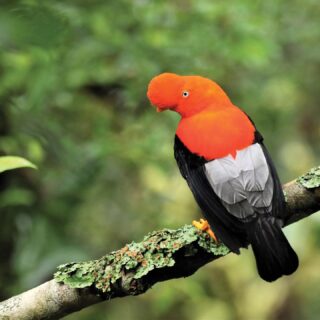COP30: A Turning Point for Action and Collaboration for the Amazon
November 26, 2025
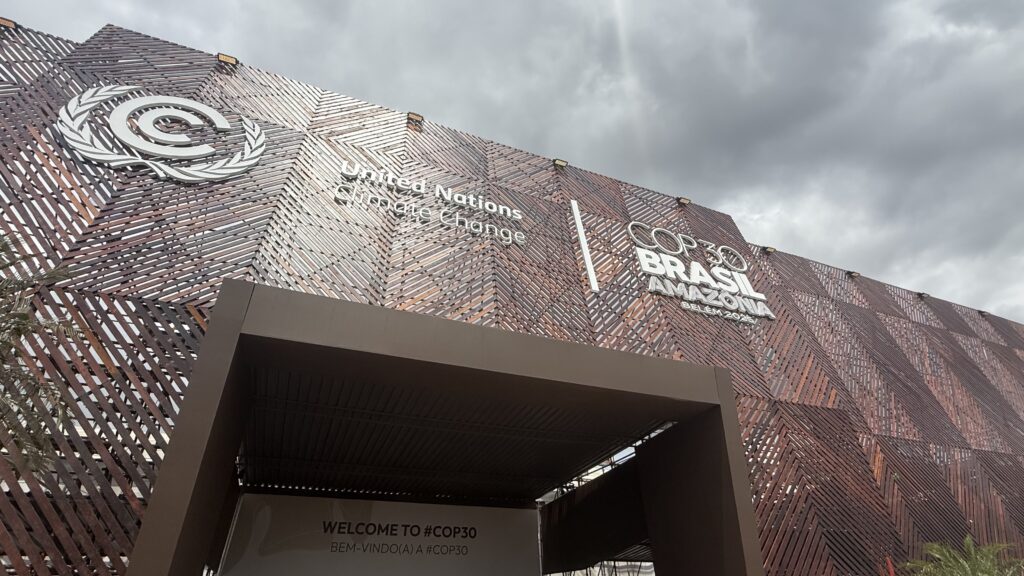
When COP30 opened its doors in Belém, Brazil, the first United Nations climate summit ever held in the Amazon, it became clear that the world had arrived not only to negotiate but also to listen. With more than 190 countries represented, over 50,000 delegates gathered, and historic participation from more than 2,500 Indigenous leaders, this COP took on a different tone: grounded in territory, science, and lived experience.
For Amazon Conservation, the summit reinforced a message we have carried for more than 25 years: the Amazon’s future depends on collaboration across borders and sectors. Throughout the week, our events at the Socioenvironmental Journalism House, the Center for Climate Crisis Analysis (CCCA) Climate Hub, and the Colombian Pavilion brought scientists, journalists, civil society and grassroots organizations, policymakers, and forest-based specialists together to discuss actionable solutions for the region.
Science, Monitoring, and Regional Leadership
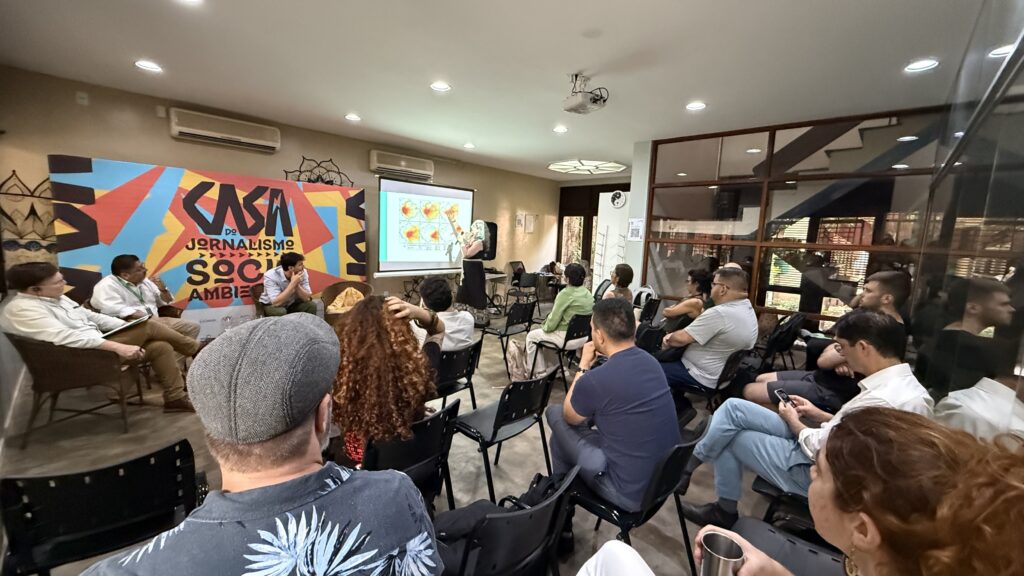 Working alongside our sister organizations Conservación Amazónica-ACCA (Peru) and Conservación Amazónica-ACEAA (Bolivia), we contributed to multiple science-driven discussions throughout COP30. At the session “Amazon Tipping Point at a Bay,” Conservación Amazónica-ACEAA’s Executive Director Marcos Terán emphasized that the tipping point is not only an ecological threshold but also a social one. He noted that “as climate impacts intensify, entire communities and even industries in the eastern Amazon may be forced to migrate westward, accelerating existing pressures. Financial mechanisms must also support this social dimension — including restoration and the needs of climate migrants.”
Working alongside our sister organizations Conservación Amazónica-ACCA (Peru) and Conservación Amazónica-ACEAA (Bolivia), we contributed to multiple science-driven discussions throughout COP30. At the session “Amazon Tipping Point at a Bay,” Conservación Amazónica-ACEAA’s Executive Director Marcos Terán emphasized that the tipping point is not only an ecological threshold but also a social one. He noted that “as climate impacts intensify, entire communities and even industries in the eastern Amazon may be forced to migrate westward, accelerating existing pressures. Financial mechanisms must also support this social dimension — including restoration and the needs of climate migrants.”
Building on this regional perspective, Luciana Gatti, from Brazil’s National Institute for Space Research (INPE) connected 46 years of atmospheric and climate data to the findings of our Monitoring of the Andes Amazon Program’s (MAAP) findings on drying patterns and vulnerability. She emphasized that “the more deforested a region is, the more rainfall it loses and the more its temperature increases — especially during the dry season. The time for action is now.”
Amazon Mining Watch and Environmental Crime
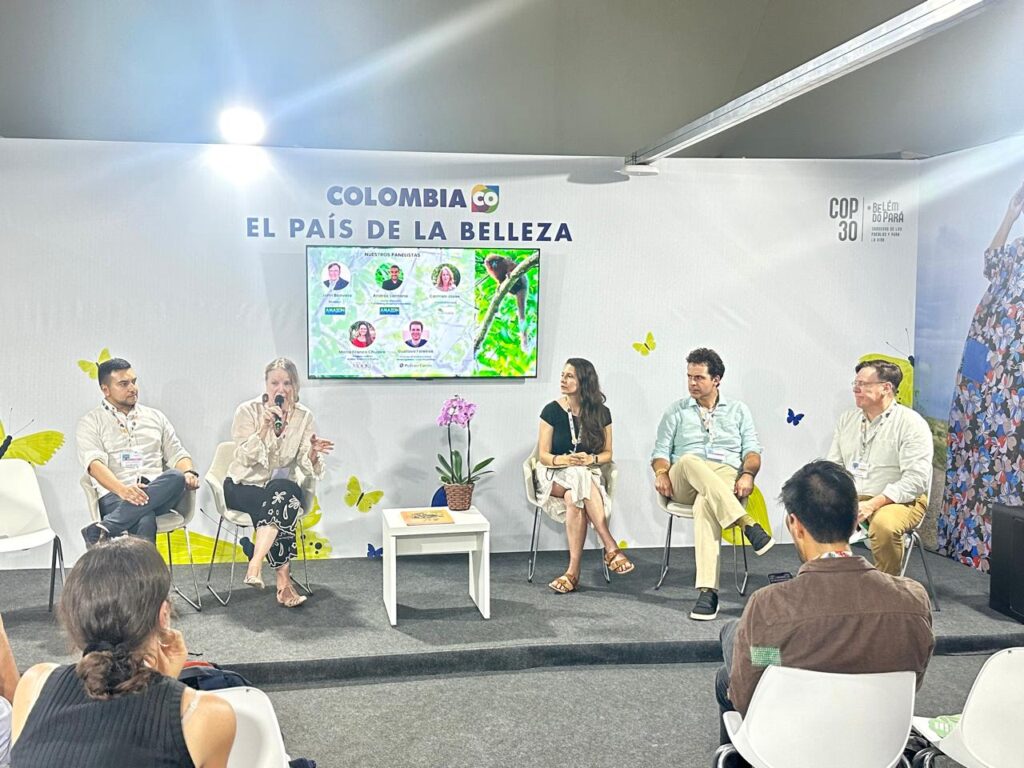 Illegal gold mining was a notable common concern throughout discussions on governance and environmental crime. Amazon Mining Watch (AMW), which we developed with Earth Genome and the Pulitzer Center and implemented with partners such as Fundación EcoCiencia and Instituto Centro de Vida, became an essential tool for journalists, civil society, and Indigenous organizations to address these concerns.
Illegal gold mining was a notable common concern throughout discussions on governance and environmental crime. Amazon Mining Watch (AMW), which we developed with Earth Genome and the Pulitzer Center and implemented with partners such as Fundación EcoCiencia and Instituto Centro de Vida, became an essential tool for journalists, civil society, and Indigenous organizations to address these concerns.
Carmen Josse, Executive Director at Fundación EcoCiencia, highlighted AMW’s added value for cross-border collaboration. She noted that “the platform’s ability to compare legal, fiscal, and enforcement frameworks across countries using the same methodology is extremely valuable, and it helps promote dialogue between authorities in neighboring countries.”
Maria Franco Chuaire, Program Officer at the Gordon and Betty Moore Foundation, reinforced the need for basin-wide coordination: “We need basin-wide solutions, and this alliance with Amazon Conservation — which works with organizations across different countries — is essential to address both local challenges and shared challenges that require transboundary and connected responses.”
We also supported a civil society mapping effort in a working group at COP, for which we are now gathering information for the next steps of the World Bank’s Amazon Sustainable Landscapes Program (ASL) to coordinate responses to environmental crime.
Forest-Based Economies and Local Leadership
Conversations about sustainable value chains of Amazon forest products, including Brazil nuts, açaí, cacao, and others, drew on more than a decade of work by our sister organizations Conservación Amazónica-ACCA and Conservación Amazónica-ACEAA in the Madre de Dios–Acre–Pando (MAP) region that covers an overlapping intersection of forest in Peru, Brazil, and Bolivia. Their experience supporting community-led production, expanding market access, and building climate resilience helped guide discussions about expanding forest-based economies, including in Brazil.
Across all sessions, one message remained clear: sustainable livelihoods must be built with local people at the center.
More than 200 participants joined us for six events we co-hosted, while another 60 partners gathered at our networking reception focused on halting illegal deforestation. Leaders from the Norwegian Development Agency (NICFI), the Gordon and Betty Moore Foundation, and others emphasized long-term collaboration and trust. At the reception, Amazon Conservation President John Beavers reflected on how our approach is resonating across the basin, noting that “the great take-home is that there is great enthusiasm for the work we’re doing.Really, it’s about people; it’s about keeping those forests standing — whether it is applying the law or building a forest-based economy. We feel there is a lot of echo for what we’ve been saying in the region, and we feel great about the new partnerships we’re building and what the future holds for the Amazon.”
Outcomes of COP30
According to the United Nations, countries committed to mobilizing a collective $1.3 trillion annually by 2035; doubling adaptation finance by 2025 to build climate resilience, then tripling it by 2035; operationalizing the Loss and Damage Fund; launching the Global Implementation Accelerator; and establishing the Belém Mission to 1.5°C (34.7°F). Countries also pledged for the first time to counter climate disinformation.
However, the absence of a commitment to phase out fossil fuels — an objective supported by more than 80 countries — highlighted a major gap. Brazil announced plans for two new roadmaps: one to halt and reverse Amazon deforestation, and another to guide a just transition away from fossil fuels.
Looking Ahead
From science and monitoring to community-led economies and coordinated action on environmental crime, Amazon Conservation and our partners brought a unified, regionally grounded perspective to COP30. As the world moves on from negotiation towards implementation, we will continue working alongside the people who protect the Amazon every day.
Also, check out the InfoAmazonia story “At COP30, Researchers Call for Expansion of Brazil’s Zero Deforestation Target by 2030″ produced with Amazon Conservation scientific support by clicking here.

